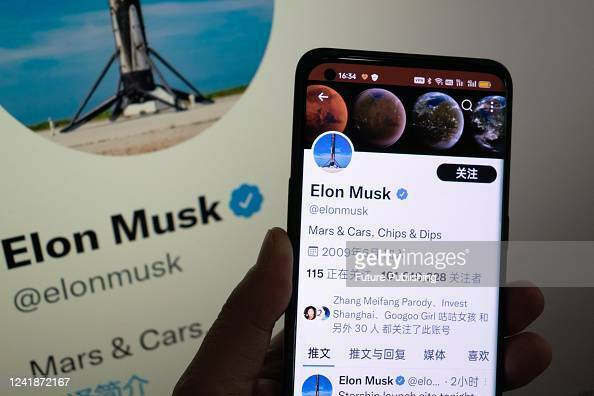What Anchors Your Attention in an Abundance of Information?

There is no secret that the abundance of information has had a significant impact on our attention span. We’re constantly bombarded with news and updates, but it’s becoming increasingly difficult to focus on what matters. In fact, according to a study published in the journal PLOS ONE, “Our everyday experiences suggest that the amount of information we are exposed to has increased significantly in the past few decades.” This abundance of information is leading to a decrease in our attention spans, which is having a negative impact on our work and personal lives.
There’s a lot of noise in the world. The more we try to focus on one thing, the harder it becomes to stay focused. That’s why it’s so important to have tools and techniques for anchoring our attention.
Our brains are not able to process all the information we’re getting. In fact, studies have shown that when we’re presented with too much information at once, our brains actually start to shut down. We start to lose focus and become less productive. Fortunately, there are ways to combat this problem. One way is to take breaks often. When you take a break, your brain can reset and start processing the information again. You can also try to focus on one task at a time. This way you won’t be overwhelmed and you will be able to better focus on what you’re doing.
There are a few ways to do this, but one of the most common is called “The Pomodoro Technique. The goal of the Pomodoro Technique is twofold: first, it helps us focus on tasks by breaking them down into smaller parts. And second, it teaches us how to relax and take a break when we need it.

There is a time for everything
To anchor your attention and focus on what really matters, it’s important to have a clear understanding of how your brain functions. “When you’re trying to focus on something, the areas of the brain that are activated are those that are used for task-related focus,” says Barry Schwartz, PhD, a professor at Swarthmore College and author of The Paradox of Choice: Why More Is Less. “But when you’re not paying attention to something, the areas that are activated are the ones that are used for pleasure or leisure activities.”
In order to keep your attention focused on what you’re trying to do, Schwartz recommends setting boundaries. For example, if you’re trying to study for an exam, set a limit on how much time you’ll spend on each section and make sure to complete all of the questions. “It’s very difficult to stay focused when we’re constantly being pulled in different directions,” Schwartz says. “Having clear boundaries will help us stay on task.”
If you find yourself struggling to stay focused, try focusing your thoughts on something else. “One way to break free from a distraction is to change your focus,” Schwartz says.
Of course, it’s important to be mindful of how you use your brain throughout the day. “The key is to make sure that you’re using your brain in a way that is beneficial,” Schwartz says. “If you’re trying to study for an exam, try focusing on the material, not getting frustrated if you don’t know the answer right away, and taking breaks as needed.”
It has been said that in the age of abundance, information is becoming more and more difficult to focus on. We are constantly bombarded with distractions, whether it’s notifications from our phones, emails, or social media posts. It seems like there is always something vying for our attention. This abundance of information is not only impacting our attention span, but it’s also impacting our ability to learn new things.

How does the abundance of information impact your attention span?
Attention span is something that we all struggle with from time to time. Whether it’s trying to focus on a single task or trying to keep up with the rapid fire pace of modern life, it can be tough to maintain focus for very long. But what if there was a way to decrease your attention span without even realizing it?
The abundance of information has led to an increase in Attention Deficit Hyperactivity Disorder (ADHD). According to the National Institute of Mental Health, approximately 3 percent of children have ADHD, which is a disorder characterized by problems with focus, hyperactivity, and impulsiveness.
There are many factors that can contribute to ADHD, including genetics and environment. However, one of the biggest contributors to ADHD is the amount of information people are exposed to.
According to a study conducted by professors at University College London and Columbia University, exposure to too much information leads to decreased attention span. The study participants were divided into two groups- one group was given a list of 36 words and had to memorize them, while the other group was given a list of 12 words and had to remember them for a later test. The results showed that the group that was given the list of 12 words had a significantly better attention span than the group that was given the list of 36 words.
This study provides evidence that exposure to too much information can actually impact attention span. The researchers believe that this is because too much information overloads our cognitive system and makes it difficult for us to focus on one task. In addition, this study provides an explanation for why ADHD is often associated with a short attention span.
So, if you are struggling with focusing on tasks or have a short attention span, it might be helpful to try limiting your exposure to too much information.

Is your attention span a necessary skill?
There is no doubt that the abundance of information available to us has had a drastic impact on our attention spans. According to a study by the University of California, Irvine, in 2012, the average person’s attention span has decreased from 12 minutes in 1980 to 9 minutes in 2012. After only a decade, other sources consider that your attention span is reduced to 3 seconds in 2022. Experts attribute this decrease in attention span to the constant bombardment of information that we are exposed to on a daily basis.
In fact, according to one study, people who spend more than five hours per day online are 20 percent more likely to have Attention Deficit Hyperactivity Disorder (ADHD) than those who spend less time online. The problem with constantly being bombarded with information is that it becomes harder and harder for us to focus on anything for any length of time. This is why it is so important to take breaks every once in a while and spend some time away from all of the electronic devices.
Fortunately, there are ways that we can help limit the amount of information that we are constantly exposed to. One way that you can do this is by setting boundaries for yourself. For example, if you find yourself spending too much time online browsing different websites, start setting a cutoff time for when you will finish your browsing session.

Effects of Overload on Attention
When faced with too much information, it can be hard to focus on anything. This is because our attention span is limited and we can only process a certain amount of information at any one time. When there are too many new things to learn, keep track of, or investigate, it can be difficult to stay focused on anything for very long.
This is particularly true for people who are multitasking. When we are trying to do two things at once, our attention is divided and we are less likely to be successful in either task. This is why it is important to limit the amount of information that we are exposed to at any one time. If we can focus on just one thing, we are more likely to be successful in completing that task.
There are also some strategies that you can use when you find yourself struggling to focus. One strategy is to take a break and come back later when your attention span has been restored. Another strategy is to try to organize the information that you are trying to keep track of into manageable chunks. This will make it easier for you to focus on each piece of information.

How Information Averages Out
We live in a digital world where information is abundant. More and more people are getting their news from social media and websites instead of traditional newspapers or television. This has led to an increase in the amount of information people are exposed to each day.
The abundance of information can be a good thing, as it allows us to stay up-to-date on our news and current events. However, it can also have negative consequences. Because so much information is available, it can be hard for people to focus on anything for very long.
In fact, research has shown that the more information people are exposed to, the shorter their attention spans become. The average person can focus on something for only about 20 minutes before their attention starts to wander. This means that if you’re trying to read a book or watch a movie, you’ll have to stick with it for a while in order to get your full enjoyment out of it.
Fortunately, there are ways to combat the effect of the abundance of information on our attention span. One way is to use filters: specifically, smart filters that help us focus on the things we want to see. For example, when I’m looking at my Facebook feed, I can set up a filter that only shows posts from friends. This way, I’m able to focus on the things I want to see without being inundated with information that I don’t care about.
Overall, the abundance of information is a double-edged sword. On one hand, it’s great because we can stay up-to-date on our news and current events. However, on the other hand, it can have negative consequences like short attention spans. Luckily, there are ways to combat this effect, so everyone can enjoy the benefits of an abundant digital world while also preserving their attention span.
Too much information can have a negative impact on your attention span. When we are bombarded with too much sensory data, our brains struggle to process and focus on what is important. This can lead to scattered thoughts, reduced productivity, and fatigue. In order to combat this issue, it is important to take some time each day to disconnect from the digital world and relax your mind.
Spend time outdoors in nature, read or write a book that you enjoy instead of scrolling through social media feeds or checking email.
Join a community of likeminded people who can inspire you take a fresh perspective on your life and where you want to go next. By doing so, you will help reduce the amount of information that impacts your attention span and allow your brain to focus more efficiently on what is important.





